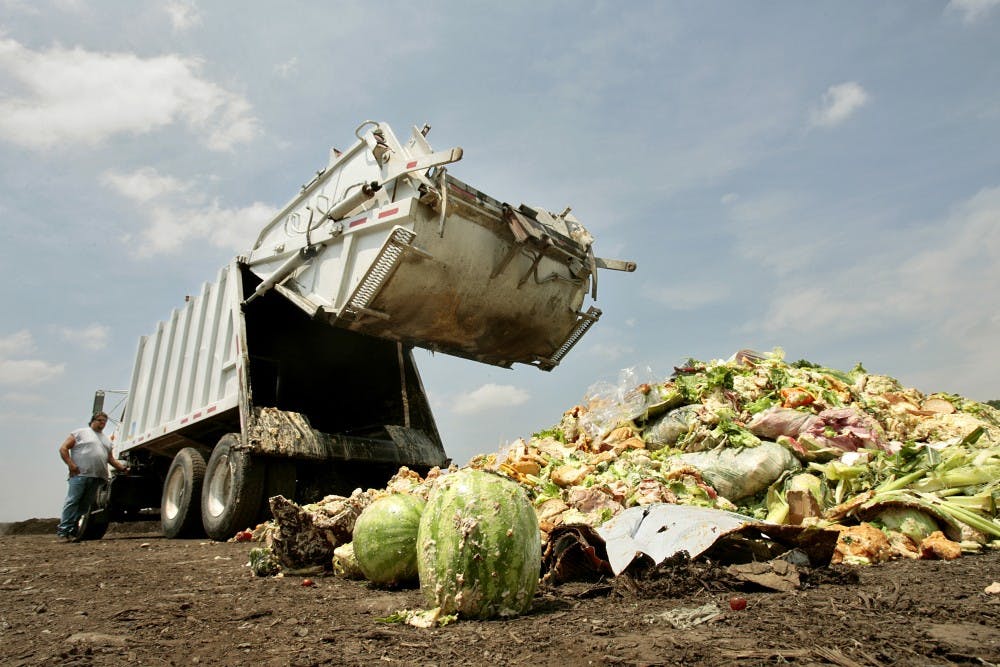The Indiana Recycling Coalition has launched a major effort to cut food waste across the state, while colleges and universities including Ball State work to recycle food that would otherwise be discarded.
“Now is clearly the right time to work on food waste reduction in Indiana,” said Carey Hamilton, executive director of the Indiana Recycling Coalition.
His group announced April 11 that it will work with funding from Meijer, the City of Fort Wayne, Lake County Solid Waste Management and others to cut waste.
“Very little infrastructure for managing food scraps exists in Indiana today, though local stakeholders … offer common-sense solutions for Hoosiers,” a coalition statement said.
This spring and summer the IRC plans to host meetings on composting, reuse and other strategies for what it calls, “Indiana’s food scrap challenge.”
The U.S. Department of Agriculture last year announced a plan to cut food waste in half by 2030. A USDA report estimated that in 2010 the country wasted 31 percent — or 133 billion pounds — of food, which simply went uneaten.
Indiana’s public universities use a variety of strategies to cut waste.
Purdue University, the University of Southern Indiana and Ball State University recycle oil from fryers. At Purdue and USI, the grease is taken from fryers and converted into biodiesel fuel, which can be used to run engines.
Additionally, USI, Purdue and Ball State gather leftover food that has not been served and donates it to local missions and charities.
Students have gotten involved at Indiana University-Purdue University Indianapolis, where they started the Campus Kitchen Project, which gathers unused food from dining halls and donates it to people in need.
They have recovered more than two tons of food and donated it to the Wheeler Mission homeless shelters in central Indiana.
“It has been a wonderful initiative,” said Deb Ferguson, IUPUI assistant director of sustainability.
Ball State focuses on eliminating leftovers before it hits the plate, said Karen Adkins, interim director for campus dining.
“We work hard at training our employees in minimizing waste,” she said. “We serve portion sizes that encourage patrons to return for seconds - rather than over-serving, resulting in food waste.”
Purdue and Indiana University compost the leftovers from their dining halls, using natural bacterial breakdown to produce fertilizer. Ball State also collects coffee grounds for campus composting.
Many of the schools, including Vincennes and Indiana State, promote sustainability by buying locally grown produce.
Ball States has a goal to purchase 20 percent of all produce locally.





